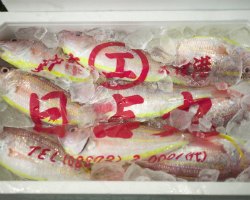
For years now, wild Pacific fish has been touted as being lower in contaminants than fish from other waters, but in the wake of the rising radiation levels from the Fukushima plant in Japan, many consumers are wondering if any ocean life is safe.
On April 1, 2011, Food Safety Net reported that the amount of radioactive iodine-131 isotopes in samples taken just off the coast of the Pacific Ocean has surged to 4,385 times above the regulatory limit – up from the previous day’s reading of 3,355 times above the limit, and 104 times greater than levels recorded only a week prior on March 25th.
The U.S. Food and Drug Administration is requiring that any food entering the United States from northern Japan to be checked for radiation and insists that to date, all fish that has been imported from Japan has tested negative and is safe.
Despite their safety claims, only time will unveil the true health and economic repercussions of the Japan disaster.
In the meantime, you can protect yourself by avoiding fish and seafood (including sushi) caught from Pacific waters. Instead, purchase organic fish raised in controlled waters (for example, an organic fish farm) or fish from the Atlantic. Frozen fish or fish packaged or canned prior to March 11, 2011 are safe, as radiation cannot affect wrapped fish.
Keep in mind that farmed salmon labelled ‘Atlantic’ salmon is not actually caught in the Atlantic Ocean and may harbor more contaminants than fish caught off the coast of Japan! It’s recommended that farmed fish from eastern Canada, Norway and Scotland is not consumed more than three times a year, and that farmed fish from Maine, western Canada, Washington State and Chile is not consumed more than six times a year.
Reference:http://www.articlesbase.com/
wellness-articles/does-farmed-
atlantic-salmon-pose-any-
heath-risks-522396.html#
ixzz1IGxtADIv




